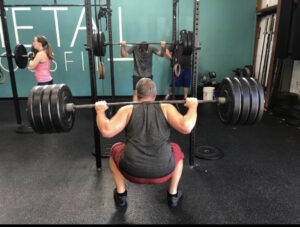Macroeconomics 119
Waaay back when the CARES Act was first enacted, I mentioned the $1,200 stimulus check wasn’t enough to cover the average mortgage (monthly loan payment on a house) in the U.S. ($1,500). That was the beginning of April, and a month later I haven’t gotten my $1,200 check, but I have paid my mortgage twice since then. I still have a steady income (minus two coaching stipends), and I also have an *emergency* savings fund. What about the other homeowners out there who aren’t as fortunate? Why aren’t we seeing a rise in defaults on loans, foreclosed houses, and bankruptcies?
In 2008 alone, there were 3,100,000 (3.1M) foreclosures filed. That happens when a homeowner stops making mortgage payments and the lender financing the loan takes the house back so it can sell it and recoup the money from the loan. Let’s examine this process.
The median home value in Austin is $401,999. Most people who buy a house don’t have that much cash saved, so they take out a loan. Borrowers pay interest on loans due to “positive time preference“, i.e. everyone would rather have money now than later, and often is willing to pay a price to get it sooner. Inflation must also be accounted for, as the purchasing power of the dollar decreases a few percentage points per year (nominal interest rate – inflation rate = real interest rate). Lenders asses risk factors, meaning the risk of default (the loan not being paid back), which breaks down into the risk of the borrower (credit score, mainly) and the risk of the loan (some loans are riskier than others).
There are a lot of ways to buy a house, but the standard single family residence loan requires 20% of the payment up front (an $80,399 down payment, for the median price) and likely a 30-year repayment period. The nationwide average interest rate for a 30-year loan on May 2nd was 3.58%.
I just plugged all those numbers into the Nerdwallet calculator, and it told me the monthly mortgage payment would be $2,335 ($1,456 for the loan itself, $646 for property taxes, and $233 for homeowner’s insurance). Remember, I warned you property taxes in Texas were high… Taxes and insurance you’ll never *see* (you see taxes in the form of whatever the government spends your money on, and you’ll only see insurance if something bad happens). The loan payment is broken up into principal and interest: principal is what goes toward reducing the amount on the loan, and interest is what you pay for the privilege of *buying* the house with $80,399 rather than saving $401,999 first. In this case, the amount you are borrowing is $321,600 (sale price minus down payment). Of that first payment, $499.09 goes toward paying down the loan, and $959.44 goes toward paying interest on the loan. Each month after that, a little more goes toward principal and a little less toward interest—the first time your principal portion is higher than your interest portion, in this case, is February 2031 (just under 11 years in). You can see all this in advance by looking at the amortization schedule of your loan.
Oh, by the way, for those of you thinking, “that’s too much money, I’m never buying a house”. First, you shouldn’t be surprised—you knew housing costs take up 30% of the average Americans budget. Second, it’s may seem like a small consolation, but you can deduct mortgage interest from taxable income, and you know reducing your tax bill can make a big difference. Third, just throwing it out there, the New York Times has a tool to help decide if it makes more sense for you to rent or buy. I looked up rent for a few ~$400k houses in Austin and it was ~$2,050 per month. Decisions, decisions.
This post isn’t funny, and last Monday I recommended a movie that “wasn’t for everybody”, so I’m going to make it up to you by telling you about Demetri Martin. He’s a comedian with several stand-ups on Netflix, the most recent two being The Overthinker [2018] and Live (At The Time) [2015]. His sense of humor is similar to mine—mostly deadpan… he likes to toy with the meaning and usage of words and point out absurdity in the otherwise monotonous details of everyday life. He’s my favorite, and he’s for everybody.
What happens if you buy a house and stop paying your mortgage? Depending on the lender and the state, there will be some process in place for foreclosing on your home—taking it back, because the lender has the right to collect its loan. This happens when the thing you bought with the loan is included in the contract as collateral, and it’s standard procedure. After foreclosing, the bank can then sell the house and apply whatever money it collects to pay off as much of the remainder of the loan as possible. Your “equity” in your house is the difference between its market value and how much you owe on the loan. You start with just the down payment, and every month your equity increases by the principal payment. You can also gain equity if the market value of your house increases after you take out the loan, aka “appreciation“.
If you buy a house for $401,999 and then the market drops ~25% and now you owe $321,600 on a house you can’t sell for more than $301,999, what are you going to do? [By the way, a 25% drop is less than Phoenix, Las Vegas, San Francisco, Miami, Los Angeles, and San Diego housing markets experienced in 2008]. Well, you may be tempted to stop paying your mortgage, because you’re “underwater”—you owe more than the asset is worth, total. You could keep making payments if you’re able and hope the market recovers quickly, but it definitely makes more sense to stop making payments than it does to try to sell. If you default it’s a lose-lose-lose-lose—your *equity* disappears into thin air, and you have to find a new place to live, and the bank has to expend resources to repossess your house and sell it, and it still ends up with less-than-full repayment.
Okay, so, having millions of those lose-lose-lose-lose scenarios helps explains why the 2008 financial crisis was so bad. Is history going to repeat itself? After all, nearly 4,000,000 (4M) homeowners are no longer paying their mortgages, or 7% of all homeowners in the U.S., as of May 1st.
Normally, lenders give borrowers up to 15 days to pay their mortgage, and if you don’t submit it during that stretch, it’s late. A late payment has a late fee associated with it, often something like 5% of the payment. If you still haven’t paid after 30 days, your mortgage enters default, your lender reports the missed payment to credit bureaus, and it goes on your record and lowers your credit score (each missed payment increases the damage). After 120 days, the foreclosure process begins.
Think through the ripple effect of a tenant who lost their income and doesn’t pay their rent. The landlord doesn’t pay the mortgage, the lender doesn’t get their money back. The tenants may be evicted, the landlord may default, and the bank may end up with a repossessed house they never wanted and no one wants to buy. That’s a huge reason why the government is so concerned with putting money in people’s hands via unemployment benefits and business loans—to stop that cycle from beginning, or at least preventing it from hitting a tipping point that crashes the housing market.
Even with all the government stimulus money being injected into the economy, a whole lot of rent and mortgages are not being paid, even by large companies. Corporate chains like The Cheesecake Factory, Subway, and Equinox gyms have all openly announced they weren’t planning on paying rent during the lockdown. Go on Twitter and search “#cancelrent” and you’re going to see some things.
Rather than immediately start the default and foreclosure process, which was standard procedure in the past, it seems the mortgage industry is taking a longer view, partially because lenders want to avoid a 2008 repeat, and partially because the government is the lender this time around. This means the lender may not get all their payments in full or on time, but they seem to be prioritizing making something work, for now, rather than ending the arrangement entirely.
Ever heard of Fannie Mae (Federal National Mortgage Association) and Freddie Mac (Federal Home Loan Mortgage Corporation)? Well, since September 2008, they both have been “Government Sponsored Enterprises” (GSEs). Today, they own or back roughly half of all the mortgages in the United States. When you account for Federal Housing Association (FHA), Veteran’s Affairs (VA), and United States Department of Agriculture (USDA), the government owns well over 50% of U.S. home loans. Freddie Mac’s net income dropped 88% in the first quarter.
The CARES Act included provisions that allowed federally-backed mortgages to “defer” their mortgage payments for up to 180 days, and apply for another 180 after that— up to a year, potentially. The requirement is that the borrower must be “experiencing financial hardship due to COVID-19”. I am not sure how any of those words in quotes are defined or enforced, but many states have partnered with private lenders to offer similar plans. In this arrangement, the mortgage enters something known as “forbearance“.
In short, this is a mutually agreed upon halt of mortgage payments, but it does not cancel the payments entirely. Some lenders may add the missed payments to the end of the loan term, others may try to collect all the missed payments in a lump sum at the end of the deferment period (although that’s pretty clearly problematic). As part of the agreement, these missed payments will not hurt borrowers credit scores, but they do go on the record (kind of like some schools saying seniors’ fourth quarter grades don’t *count*, but future employers will still be able to see who checked out and who locked in). Interest on the loan may or may not continue to accrue during forbearance, depending on the terms.
Many states have also instituted temporary bans on evictions and foreclosures in the early stages of the response; Texas’s initial ban ends this Thursday.
What happens next? Unfortunately, forbearance doesn’t solve everything. U.S. mortgage firms are predicting a $100,000,000,000 (100B) shortfall over the next nine months, if this trajectory continues. Basically, these companies package mortgages and sell them to investors, and the payments are scheduled in advance. No one accounted for the mortgage companies ceasing to receive payments and not being able to fund the payments to their investors. So they are saying they need money from the government or they may go out of business.
I hope you’re starting to see how interconnected everything is and how money moves through an economy—stopping payment in one area but not others is like a juggler trying to freeze one flaming bowling pin in the air while keeping the other ones moving. As businesses start opening back up and people get back to work and money starts flowing again, the big questions are how quickly it happens and to what degree demand returns. As months pass, the number of unpaid mortgages is only going to increase, and forbearance can’t last forever. As consumers start spending again, their habits and preferences are going to be different. Some jobs are never going to come back, and other jobs may be created. We’re coming back to a different world than we left, and the math may not add up. Who loses?
Think about the relationship between travel and the short-term housing industry. How many people out there bought houses and expected to pay the mortgage based on projected Airbnb revenue calculations? I have a friend who rents out a place in Phoenix, and he makes most of his money for the year during MLB spring training. In March his revenue was down 50% from expectations, and he did not have a single booking in April. $0. That revenue isn’t coming back anytime soon, but he still has a mortgage to pay.


